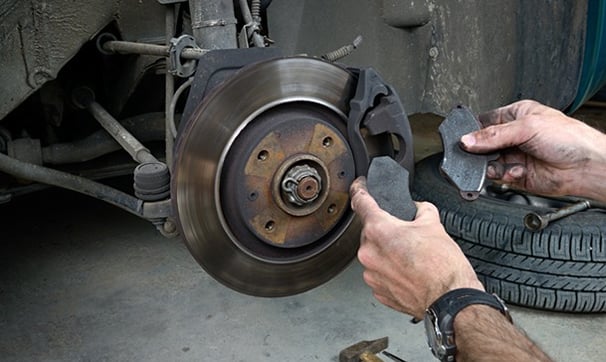How often should brake pads be replaced?


The frequency at which brake pads need to be replaced can vary depending on several factors, including your driving habits, the type of brake pads you're using, the quality of the pads, and the conditions in which you drive. As a general guideline:
Mileage:
On average, brake pads tend to last around 30,000 to 70,000 miles (48,000 to 112,000 kilometers). However, this can vary widely depending on the factors mentioned above.
Driving Habits:
Aggressive driving with frequent hard braking can wear out brake pads faster.
City driving with stop-and-go traffic can cause more wear compared to highway driving.
Type of Brake Pads:
Different types of brake pads (organic, semi-metallic, ceramic) have varying wear rates. Ceramic pads, for example, often last longer than semi-metallic pads.
Quality of Brake Pads:
Higher-quality brake pads may last longer due to better materials and manufacturing processes.
Environmental Conditions:
Driving in hilly or mountainous areas can lead to increased brake pad wear due to frequent braking on downhill slopes.
Harsh weather conditions, such as excessive moisture or salt on the roads, can also affect brake pad lifespan.
Braking Frequency:
Frequent heavy braking can wear out brake pads faster than gentle, gradual braking.
Maintenance:
Regular maintenance of your brake system, including cleaning and lubricating caliper components, can help extend brake pad life.
Brake Fluid Quality:
Old or contaminated brake fluid can affect brake pad performance and lifespan. Regular brake fluid changes are essential.
To determine when your brake pads need replacement, it's important to periodically inspect them for wear. Most brake pads have wear indicators that make a high-pitched squeal when the pads are nearing the end of their life. Additionally, during routine maintenance, mechanics may measure the brake pad thickness and recommend replacement if they are worn beyond a certain point.
Ultimately, paying attention to your vehicle's braking performance and getting regular inspections by a qualified mechanic are crucial. If you notice any signs of reduced braking efficiency, noise, or unusual vibrations, it's wise to have your brakes checked promptly. Safety is paramount, so if in doubt, consult a professional mechanic to assess your brake pads and recommend the appropriate course of action.
